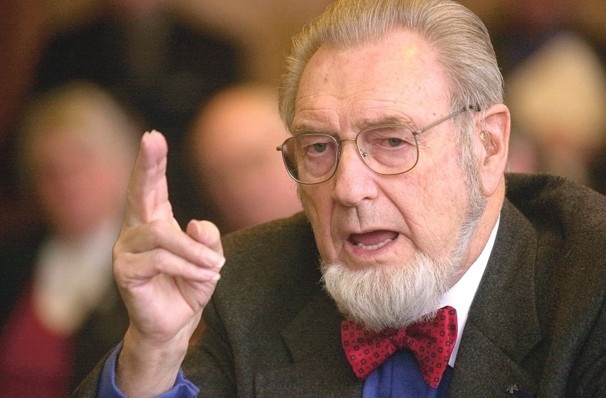“A Piece of My Mind”
April 2013 Newsletter from Donald Shoemaker
Advancing Christian Faith and Values, Defending Religious Liberty for All, Supporting Civility and the Common Good through Preaching, Teaching, Writing, Activism and Reasoned Conversations
Easter’s Theme—the Core of Christian Faith
…of first importance: Christ died for our sins…he was buried…he was raised on the third day…
If Christ has not been raised, our preaching is useless and so is your faith…your faith is futile; you are still in your sins. Then those also who have fallen asleep in Christ are lost…we are to be pitied more than all men.
– 1 Corinthians 15:3-4, 14-19 New Int’l Version
“Prophets are Good for Business”
Saying “No” to Work – God Took a Day Off and You Should Too! (Part 1)
I’ve spent considerable time thinking on Sabbath-‐keeping in studies I’ve done on the Ten Commandments, biblical values in the workplace and other topics. What is this idea and how does it fit into patterns of life?
In this newsletter I’ll give the first installment of my thoughts on this issue.
Pastors like myself (who are in the “church business”) tend to think of ourselves more highly than we ought. One way we do this is to work and work and work. During the first year of my pastoral career I thought I could do this. Seven days a week, morning and afternoon and evening, all year—I did “God’s work.” Who could criticize that? God could!
One particularly famous pastor was held up as a role model for pastors for many years. He built one of America’s great mega-churches. He never took a day off, never took a vacation, demanded the maximum from his staff. And the rest of us should be like him so we can be successful, too! He’s dead now.
I’ve come to the conclusion that such a pattern of work does not honor God, ourselves, or the people before whom we set examples.
What’s the biblical position on a break from work? It’s found originally in the first two chapters of Genesis. God spent six days making all that is. Then God took a day off. And in the Law of Moses we learn: We should take a day off too, following God’s example. (Since this is a creation story, we argue that the Sabbath is a “creation ordinance”—something good for all humanity, not something only intended for those who are “religious”.) God took a day off and we should too!
Christian understandings on keeping the Sabbath differ. I won’t go into those differences but I’ll share thoughts that all of these understandings could embrace. The great Protestant reformer John Calvin saw three values of the Sabbath:
- We are reminded that we have salvation not by our own works but by God’s work and provisions for us
- We need an agreed-to day when we can gather to worship God and hear his Word.
- We need a weekly rest from our vocation. And we must extent that right to all who labor for us.
How are you doing on these three values? We’ll develop the Sabbath principle more in later newsletters.
Bible Insight – Putting Legs on Our Prayers
A young man told me this month he had left his church in Bellflower, CA. I suggested another church in that city he might try. His answer? “I’m waiting on the Lord.” Read on…
“We prayed to our God and posted a guard day and night to meet this threat” (Nehemiah 4:9 NIV). One of my favorite verses!
Governor Nehemiah responded to threats and opposition the way we all should face our challenges—make it a matter of prayer and then do something about it. None of this pious “I’ll just trust the Lord.”
Sometimes I’ve heard the advice, “You need to put legs on your prayers.” Or there’s the German phrase: “Beten und Arbeiten” (pray and work). Good thinking!
The Apostle Peter was in jail and Christians prayed intensely. God’s angel came to Peter and said, “Get up!” And the chains fell off. “Put on your clothes and sandals. Wrap your cloak around you and follow me” (Acts 12:7-‐8). Put legs on your prayers. The angel did what Peter couldn’t do. In your prayers don’t expect God to do for you what you should do for yourself.
Trust in God doesn’t minimize personal responsibility. It enhances it. Forget “I’ll just wait on the Lord.” That’s spiritual laziness, justified passivity, religious fatalism, with perhaps a little pride thrown in.
Religious Liberty Vigilance
“Congress shall make no law respecting an establishment of religion, or prohibiting the free exercise thereof…”
– 1st Amendment (Our “First Freedom” in the Bill of Rights)
“Those who expect to reap the blessings of freedom must…undergo the fatigue of supporting it.” – Thomas Paine
Whether you are “pro” or “con” on same-‐sex marriage, reality requires that you recognize the trend as a challenge to religious liberty. While some legislative efforts attempt to soften this challenge, it remains.
For example, in California a new law (Senate Bill 1140, passed September 30, 2012 and in effect on January 1, 2013) amends the California Family Code, in part, as follows:
SECTION 1. Section 400 of the Family Code is amended to read:
400. Although marriage is a personal relation arising out of a civil, and not a religious, contract, a marriage may be solemnized by any of the following who is 18 years of age or older:
(a) A priest, minister, rabbi, or authorized person of any religious denomination. A person authorized by this subdivision shall not be required to solemnize a marriage that is contrary to the tenets of his or her faith. Any refusal to solemnize a marriage under this subdivision, either by an individual or by a religious denomination, shall not affect the tax-‐exempt status of any entity.
My commentary:
-
“…marriage is a personal relation arising out of a civil, and not a religious, contract…”
This is a theological definition more than a legal statement. How can the law rightly state that marriage is not a “religious” contract? Certainly, marriage is a civil contract. But more fundamentally marriage is a religious covenant. Marriage is fundamentally, irrevocably religious. Secular law is really not competent to speak on such matters.
-
This code exempts “clergy” from being required to perform any marriage contrary to the religious tenets of their faith. It further says that no tax exemption status will be affected by any such refusal.
This is almost an empty gesture—a protection in search of a danger. It’s unthinkable that the state would punish clergy or “houses of worship” on the issue of marriage. Only the most radical secularists would promote such an invasion into the realm of religious liberty and the separation of church and state.
-
The Family Code lists four other categories of persons qualified to perform marriage ceremonies (such as retired judges). It does not give the right of “conscientious objection” to people in these categories as it does to clergy. Nor do I see that a chaplain clearly has a protected exemption.
-
The code does not protect individuals who, in the course of their vocations, find their religion-formed consciences at variance with a marriage practice (for examples, a county clerk, a DJ, a photographer, a wedding consultant, a singer or musician). “Free exercise of religion” should apply to church members as well as clergy. What’s good for the goose is good for the gander.
-
The code should remind all the self-anointed, “free lance” clergy out there of the potential difficulties that can come when one is not under what’s called “ecclesiastical cover.” Chaplain endorsing programs require this “cover” to show that one is under some kind of religious authority other than himself (don’t bring pious “God is my cover” talk into this discussion, either!). The Family Code seems to expect it as well.
My usual approach in social debates like this one is to look for common ground among differing sides and try to work toward a resolution from there. In this case there are formidable challenges to my approach.
You should read Section 400 of the Family Code—it is interesting. For example, officials of non-‐profit religious organizations may be licensed to perform marriages for members of that organization. But the licensee must possess the doctor of philosophy degree!!! Hey, not a problem—I know how you can get one of those for as little as $50!
Upcoming Ministries
5 Sundays in June—Speak at 1st United Methodist Church of Seal Beach on “The Lord’s Prayer” (9:30 a.m.)
Welcome to outstanding Easter services (March 31) at Grace Community Church, corner of 8th & Central in “Old Town” Seal Beach. Services are at 8:00, 9:30 & 11:00 in our Fellowship Hall and at 9:30 & 11:00 in our Surfside Room.
Message of the Month – The Legacy of Dr. C. Everett Koop

Long-time right-to-life spokesman, pediatric surgery specialist, and former surgeon general Dr. C. Everett Koop passed away on February 25.
Here is an opinion piece I wrote in 1989 on Dr. Koop’s influence as a dedicated Christian public figure.
“Dr. Koop: A Christian Who Makes a Difference”
By Donald P. Shoemaker
Long Beach Press-Telegram
January 21, 1989
Later this year the term of Surgeon General C. Everett Koop will end. Since Sunday is the 16th anniversary of the tragic and infamous U.S. Supreme Court Roe v. Wade abortion decision, it is appropriate to recall the service Dr. Koop has rendered as a Christian servant to society.
Prior to becoming surgeon general, Dr. Koop had already established himself as a national figure. He was well known for his skills in corrective surgery for birth defects. He was also well known for his strong viewpoints against abortion, infanticide and euthanasia. These were expressed in his book The Right to Live, The Right to Die. Dr. Koop believed that the ethical climate of permissive abortion would lead to a climate diminishing the value of the medically dependent newborn and elderly.
By the late 1970s, Dr. Koop was working increasingly with the “Right to Life” movement. He accepted my invitation for him to serve on the Board of Reference for the Christian right-to-life ministry “Crusade for Life.” In 1979 I had the privilege of dining with him and his wife when he delivered a keynote address to the National Right to life Convention.
Also in 1979 Dr. Koop co-authored, with the late Christian apologist Dr. Francis A. Schaeffer, the pro-life Christian book Whatever Happened to the Human Race? Drs. Koop and Schaeffer produced a film series on the book’s themes and lectured nationwide.
When President Reagan nominated Dr. Koop to be surgeon general, the doctor’s anti-abortion views led to a stormy confirmation struggle with the Senate which dragged on for months. Once confirmed, Dr. Koop worked for regulations to provide lifesaving treatment for severely handicapped infants and launched a strong anti-smoking campaign.
Then came the AIDS crisis and Dr. Koop sailed into the center of controversy once again. He called for early sex education and for condom use as a means (though less desirous than abstinence or monogamous relationships) to stem the spread of the AIDS virus. Suddenly, Dr. Koop found himself appreciated by former enemies and deplored by former supporters among the “religious right.”
His critics saw his actions, typified in his AIDS report mailed nationwide, as moral compromise or even capitulation. In my opinion, the critics failed to grapple adequately with the problem of communicating values into a world that often rejects the better solutions. An “all or nothing” attitude toward ethical engagement will probably result in “nothing” and will have little social impact.
Dr. Koop saw himself as the nation’s chief health officer, not as a “chaplain,” and said, “My message is a perfectly moral one. But everybody isn’t moral and everybody isn’t Christian. I cannot let those people go down the drain because they do not agree with me.”
As this term of service enters its final year, he has started a new crusade against domestic violence.
I look back over his years of service in and out of government and see Dr. Koop as an outstanding model of Christian commitment to public life. He reflects on his public service this way: “My thrust has been…that you really can’t separate your practice from your faith. And I’m serving the Lord for these eight years as the surgeon general. I do it with personal honesty and integrity to the best of my ability. And my personal honesty and integrity are based upon my Christian beliefs.”
The world needs thousand more like Dr. Koop.
“Easter” reminds us God gives us “new beginnings”…
“Just as Christ was raised from the dead through the glory of the Father, we too may live a new life.” – Romans 6:4




